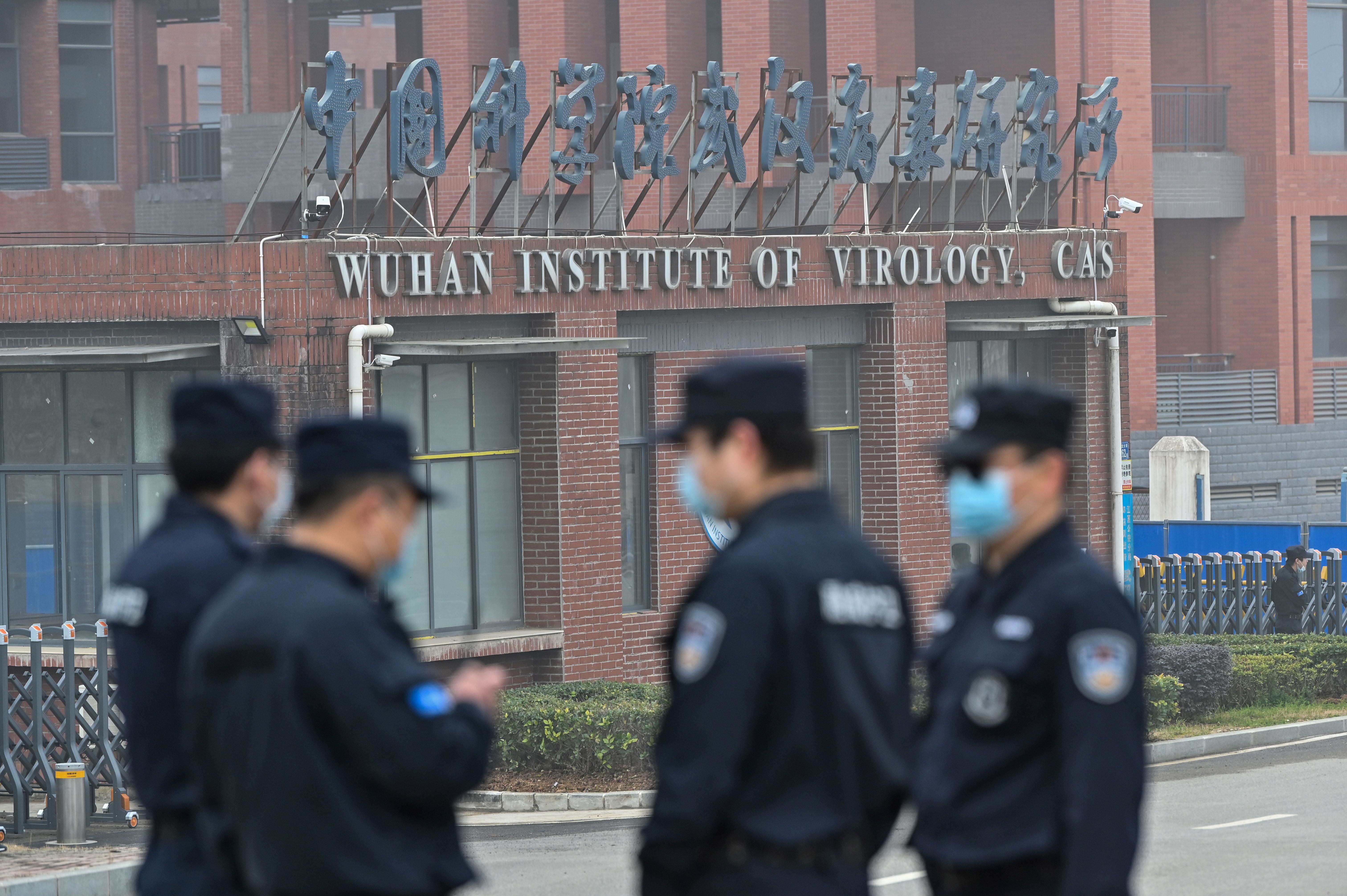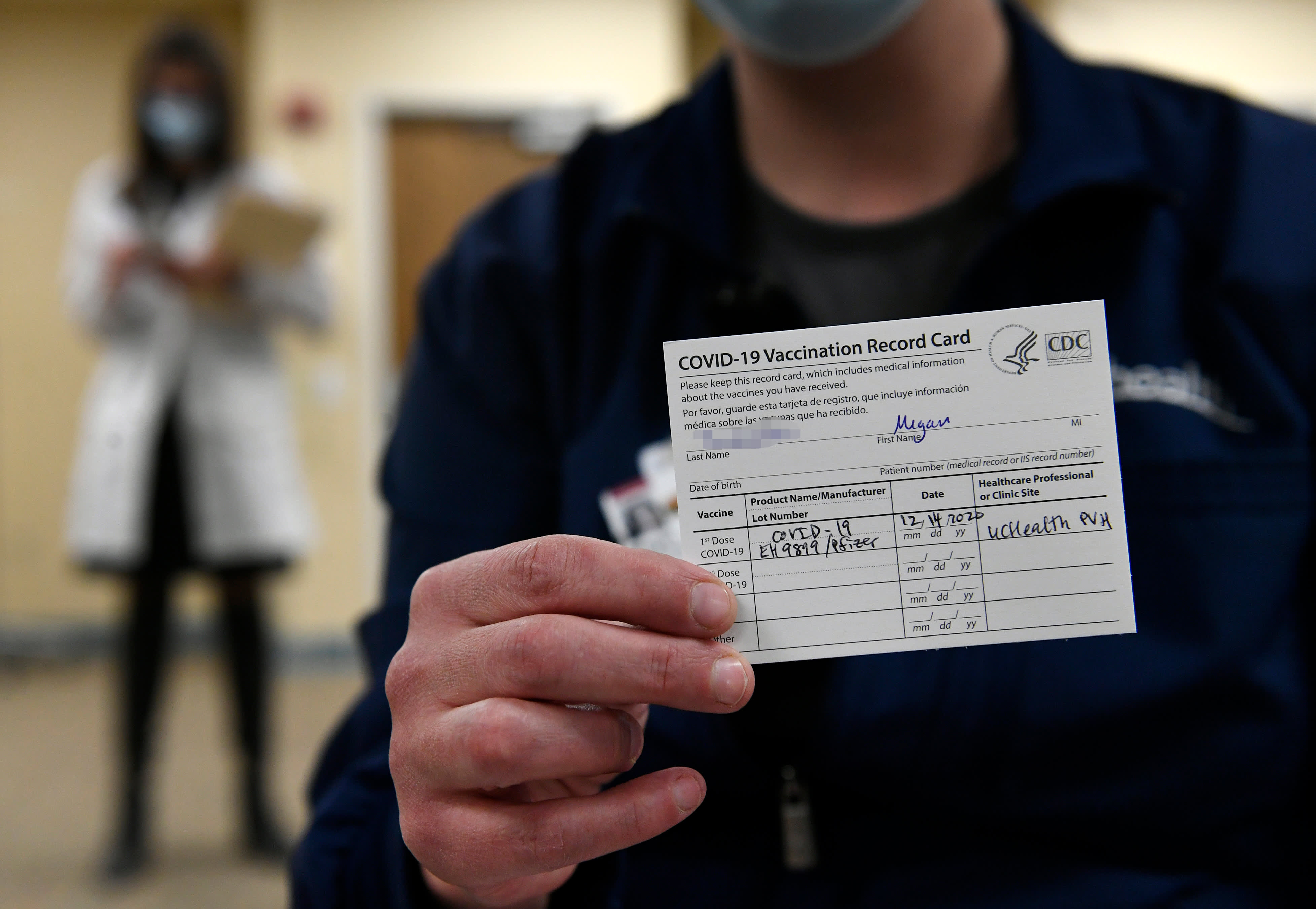The United States continues to expand its coronavirus vaccination campaign as new and more infectious virus variants spread across the country. On Tuesday, the White House said states will receive an additional 10.5 million doses over the next three weeks. And Pfizer announced plans to deliver 200 million doses of its vaccine by May, earlier than its initial forecast of July.
Meanwhile, the debate between President Joe Biden and Republican senators over a coronavirus relief bill continued Tuesday. The president and Treasury Secretary Janet Yellen declared the Republicans' $618 billion offer too small. Biden's proposed bill totals $1.9 trillion.
The U.S. has recorded more than 26.5 million coronavirus cases and 447,000 deaths since the start of the pandemic, according to a tally by NBC News.
Here are the latest coronavirus updates from the U.S. and elsewhere:
CDC: Schools Can Reopen Without Teacher Shots
The Director of the CDC says schools can safely reopen even if teachers are not vaccinated for the coronavirus.
As some teachers’ unions balk at resuming in-person instruction before teachers are inoculated, Dr. Rochelle Walensky says, “Vaccination of teachers is not a prerequisite for safe reopening of schools.” Walensky cited CDC data showing that social distancing and wearing a mask significantly reduce the spread of the virus in school settings.
White House COVID-19 coordinator Jeff Zients called on Congress to pass additional funding to ensure schools have the resources necessary to support reopening.
President Joe Biden has pledged to ensure nearly all K-8 schools will reopen for in-person instruction in the first 100 days of his administration.
Teachers are prioritized as “essential workers” under the CDC’s vaccination plans, though many have yet to receive doses as the nation continues to face a supply shortage of the vaccine.
'COVID Arm' Rash Reported in Some People Who Received the Moderna Vaccine Is 'Harmless,' Doctors Say
A red rash appearing in some people after they received the Moderna vaccine is being called “COVID arm,” NBC DFW reports. But doctors say, aside from being itchy or tender, the reaction is harmless and tends to go away on its own after a few days.
"It’s happening about seven to 10 days after. It’s mounting an immune response and what we are seeing are swollen red patches on the same arm that you receive the vaccine on," said board-certified dermatologist Dr. Elizabeth Houshmand, FAAD.
Health experts aren't sure whether it's a reaction to the spike protein in the mRNA vaccine or a preservative but feel confident that it's a positive response that the immune system is reacting as it should.
The American Academy of Dermatology Association opened up a registry for people to report any skin reactions to the vaccine.
Fauci: Watch Super Bowl at Home With Your Family
When it comes to Super Bowl parties during this pandemic year, Dr. Anthony Fauci’s says to “just lay low and cool it.”
President Joe Biden’s chief medical adviser said Wednesday that now isn’t the time to invite people over for watch parties because of the possibility that they’re infected with the coronavirus and could sicken others.
He says big events like Sunday’s game in Tampa, Florida, between the Kansas City Chief and the Tampa Bay Buccaneers are always a cause for concern because "there is always a spike" in COVID-19 cases afterwards.
Fauci says the best thing people can do is watch the game on TV at home with the people in your household.
The NFL has capped the game attendance at 22,000 because of the pandemic and citywide coronavirus mandates.
GSK, CureVac to Make COVID Vaccines Targeting New Variants
Drugmaker GlaxoSmithKline said Wednesday it will work with a German biopharmaceutical company to develop new vaccines targeting emerging variants of COVID-19 amid concerns that some mutations are making the virus harder to combat.
GSK plans to invest 150 million euros ($181 million) to support the research of the Tubingen, Germany-based CureVac, which is developing vaccines that use messenger RNA to attack the disease. GSK also said it will help make up to 100 million doses of the company’s existing COVID-19 vaccine candidate this year.
“The increase in emerging variants with the potential to reduce the efficacy of first generation COVID-19 vaccines requires acceleration of efforts to develop vaccines against new variants to keep one step ahead of the pandemic,’’ the companies said in a statement.
The announcement comes as public health officials around the world raise concerns about new virus variants that are more contagious or resistant to existing vaccines. While viruses mutate constantly, most of the changes cause little concern. But scientists are closely tracking these mutations to make sure they quickly identify variants of concern.
“We believe that next generation vaccines will be crucial in the continued fight against COVID-19,’’ GSK Chief Executive Emma Walmsley said in the statement. “This new collaboration builds on our existing relationship with CureVac and means that together, we will combine our scientific expertise in mRNA and vaccine development to advance and accelerate the development of new COVID-19 vaccine candidates.’’
Oxford-AstraZeneca Vaccine Slows Virus Transmission, Delayed Second Dose Effective, Study Shows
A new study released Wednesday morning found the coronavirus vaccine developed by Oxford and AstraZeneca slows the transmission of the virus, and a delayed second dose is still effective.
Researchers at the University of Oxford found that the COVID-19 vaccine was 76% effective at preventing symptomatic infection for three months after a single dose, and the efficacy rate rose with a longer interval before the first and second doses.
"Vaccine efficacy after a single standard dose of vaccine from day 22 to day 90 post vaccination was 76% ... and modelled analysis indicated that protection did not wane during this initial 3 month period," the study, under review at The Lancet medical journal and published on Tuesday as a preprint, found.
The efficacy rate rose to 82.4% when there was at least a 12-week interval before the second dose. When the second dose was given less than six weeks after the first one, the efficacy rate was 54.9%.
The study also provided important data on whether the vaccine reduces transmission of the virus, a previous unknown and a crucial question for policymakers looking to lift lockdown measures that have crippled the economy.
Based on weekly swabs from volunteers in the U.K. study, it found a 67% reduction in transmission after the first dose of the vaccine.
Read the full story here
Missouri Lawmaker Indicted for Allegedly Selling Fake Stem Cell Treatments for COVID-19
A Missouri state representative was charged in a 20-count indictment that alleged she fraudulently administered treatments, including for COVID-19, that falsely claimed to have stem cells, NBC News reports.
Patricia Ashton Derges, 63, allegedly gave so-called “regenerative” treatments to clients who came to the Ozark Valley Medical Clinic looking for treatment for various illnesses, according to a grand jury indictment unsealed Monday.
The clinic offered its patients amniotic fluid that claimed to have stem cells, but in fact was acellular, without stem cells.
After Derges made false claims on a Springfield television station in April that stem cells could treat COVID-19, an investigation was launched, the FBI said in a statement on Monday.
And on Facebook, Derges claimed her clinic's "amazing treatment stands to provide a potential cure for COVID-19 patients that is safe and natural," the indictment said.
Read the full story here



